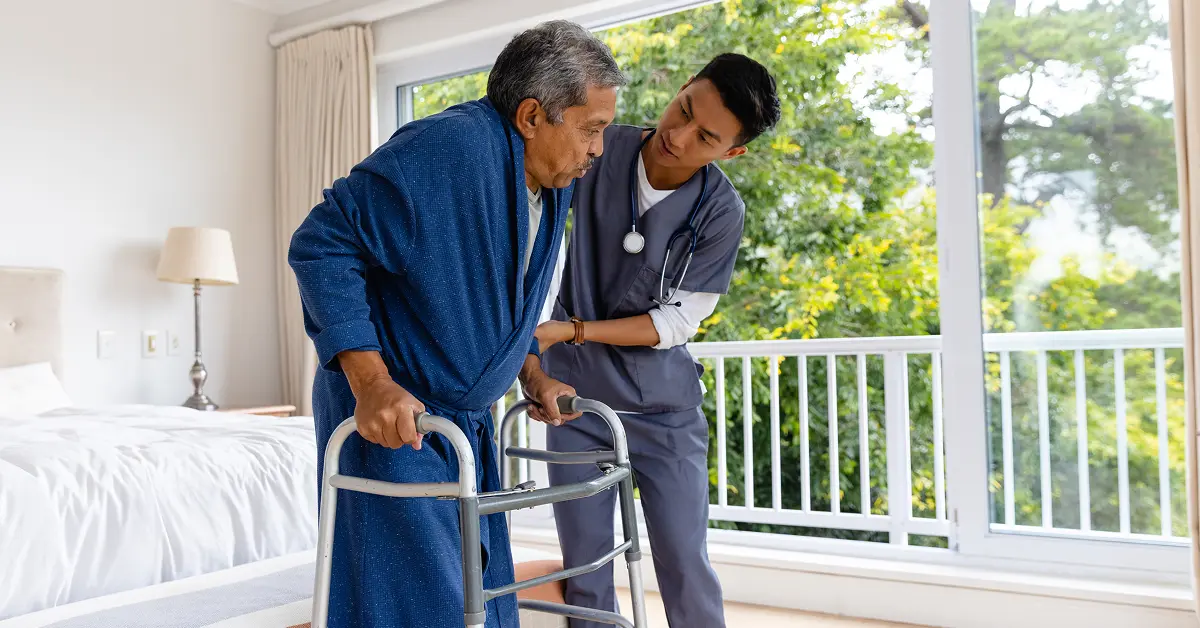Recovering from a hospital stay can be challenging, both physically and emotionally. Patients often need continuous monitoring, medical assistance, and emotional support during this critical period. This is where in-home care comes into play. Professional in-home care services provide the necessary support, allowing patients to recover comfortably in the familiarity of their own homes. However, finding the right caregiver or in-home care service requires careful consideration. Here are some essential tips to help you find the best in-home care after a hospital stay.
Assess the Patient’s Needs
Before seeking in-home care, it is crucial to clearly understand the patient’s requirements. Consider the following:
- Medical Needs: Does the patient require wound care, medication management, physiotherapy, or specialized medical equipment?
- Mobility and Daily Assistance: Will the patient need help with bathing, dressing, meal preparation, or moving around the house?
- Emotional Support: Is companionship or mental health support necessary to aid recovery?
Creating a detailed care plan will help you identify the level of expertise and type of caregiver required.
Look for Licensed and Certified Caregivers
Quality in-home care starts with qualified professionals. Always ensure that caregivers are:
- Licensed: Check for licenses or certifications from recognized health authorities.
- Trained: Ensure they have specialized training for post-hospital care or specific medical conditions.
- Experienced: Ask about their previous experience with patients recovering from similar conditions.
Hiring licensed and certified caregivers reduces the risk of medical errors and ensures reliable care.
Consider the Type of In-Home Care Service
In-home care services can vary depending on the level of assistance provided. Common types include:
- Skilled Nursing Care: For patients needing medical attention such as injections, wound dressing, or monitoring vital signs.
- Personal Care Assistance: Helps with daily activities like bathing, dressing, and meal preparation.
- Companionship Services: Provides emotional support, conversation, and light household help.
- Therapy Services: Physical, occupational, or speech therapy offered at home for rehabilitation.
Understanding the type of care required ensures you select the most suitable service for the patient.
Check Reputation and References
Reputation matters when it comes to in-home care. Take the time to:
- Read Reviews: Look for online reviews or testimonials about the care provider.
- Request References: Speak directly with previous clients to understand their experiences.
- Verify Background Checks: Ensure caregivers undergo thorough background verification for safety and reliability.
A reputable care provider demonstrates professionalism and consistently meets patient expectations.
Evaluate Compatibility
A caregiver will spend significant time with the patient, so compatibility is essential. Consider:
- Personality Match: Ensure the caregiver is patient, empathetic, and communicates well.
- Cultural Sensitivity: Look for caregivers who respect cultural, dietary, or religious preferences.
- Adaptability: Choose someone flexible and able to handle emergencies or changes in care needs.
A compatible caregiver can significantly improve the patient’s comfort, mood, and recovery rate.
Review Cost and Insurance Coverage
In-home care costs vary depending on the type and duration of services. To manage expenses effectively:
- Compare Costs: Request quotes from multiple care providers.
- Check Insurance: Verify if health insurance, government programs, or Hospital Discharge plans cover in-home care.
- Discuss Payment Options: Some providers offer hourly rates, while others provide weekly or monthly packages.
Being financially prepared ensures uninterrupted care for the patient.
Ask About Care Plans and Monitoring
A structured care plan is vital for effective recovery. When evaluating providers, consider:
- Customized Care Plans: Look for providers who tailor care based on the patient’s medical history and recovery needs.
- Monitoring and Reporting: Ensure caregivers regularly update family members or medical professionals on the patient’s progress.
- Emergency Protocols: Ask about procedures in case of sudden health issues or complications.
Clear care plans and monitoring procedures provide peace of mind to both patients and families.
Evaluate Availability and Flexibility
Post-hospital recovery can require round-the-clock assistance. Ensure the caregiver or service offers:
- 24/7 Availability: Some patients may need night-time support or extended shifts.
- Flexible Scheduling: Ability to adjust hours based on changing patient needs.
- Short-Term or Long-Term Care: Providers should accommodate recovery durations that range from a few days to several weeks or months.
Flexible scheduling helps in maintaining consistency in care without compromising the patient’s recovery.
Assess Communication Skills
Effective communication is key in in-home care. Good caregivers should:
- Clearly explain the patient’s routine and medical procedures.
- Update family members about progress and any concerns.
- Respond promptly to questions or emergencies.
Strong communication ensures everyone involved in the patient’s care is informed and aligned.
Trust Your Instincts
While certifications, reviews, and references are critical, personal intuition also plays a role. Pay attention to:
- How comfortable the patient feels with the caregiver.
- The caregiver’s attitude, patience, and attentiveness.
- Their willingness to go above and beyond basic duties.
Trusting your instincts can help you select a caregiver who not only meets professional standards but also genuinely cares about the patient’s well-being.
Conclusion
Finding the best in-home care after a hospital stay requires thorough research, careful evaluation, and attention to both professional qualifications and personal compatibility. By assessing the patient’s needs, verifying caregiver credentials, checking references, and ensuring proper communication, families can provide a safe and comfortable recovery environment at home. Remember, the right in-home care not only promotes physical healing but also supports emotional and mental well-being, ensuring a smooth transition from hospital to home.
Contents
- Assess the Patient’s Needs
- Look for Licensed and Certified Caregivers
- Consider the Type of In-Home Care Service
- Check Reputation and References
- Evaluate Compatibility
- Review Cost and Insurance Coverage
- Ask About Care Plans and Monitoring
- Evaluate Availability and Flexibility
- Assess Communication Skills
- Trust Your Instincts
- Conclusion
Our 24*7 services
Latest Posts
- What Is Respite Care and Why Is It Important
- Affordable home care for senior citizens in India
- Caring for Seniors with Dementia or Alzheimer's at Home
- Senior Caregiving A Guide for Every Family
- How to Write a Caregiver Resume That Gets You Hired
- How Care After Hospital Discharge Speeds Up Recovery at Home
- How to Get Home Health Care for Seniors Through Medicare
- What Does a Senior Citizen Caregiver Really Do at Home
- How to Care for Elderly Parents with Alzheimer’s or Dementia
- How to Get 24-Hour Care for Seniors at Home



